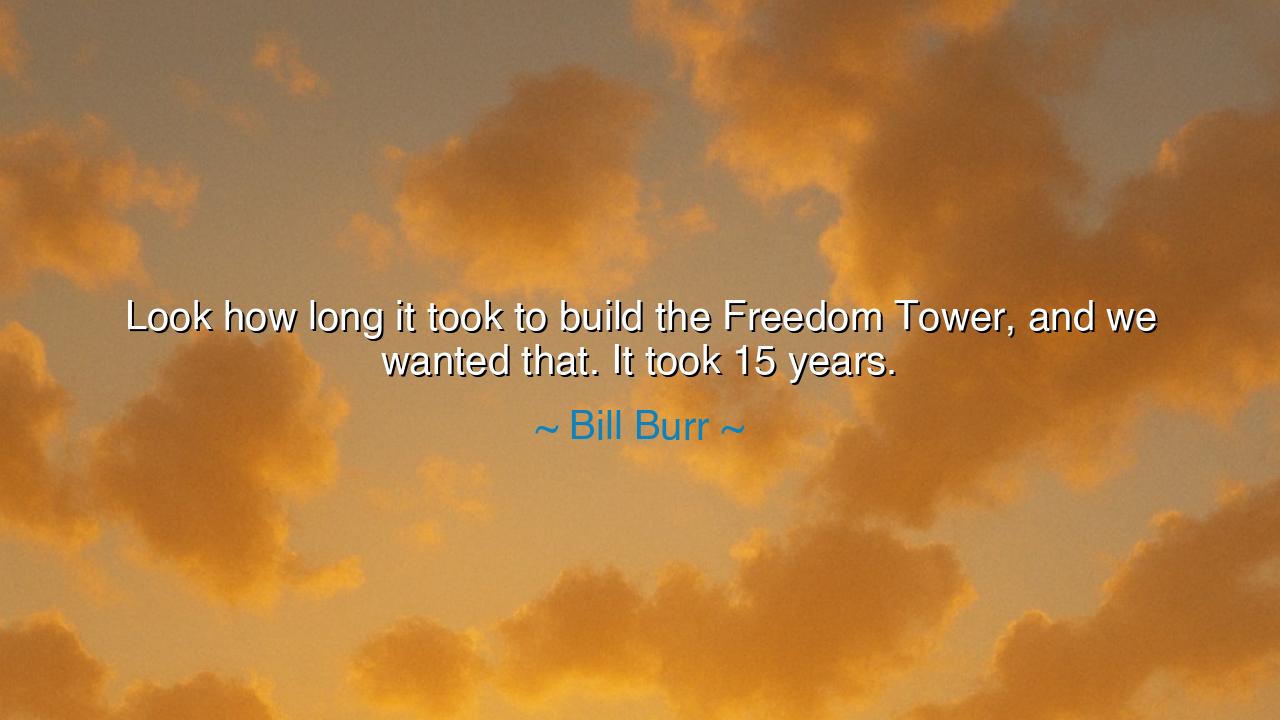
Look how long it took to build the Freedom Tower, and we wanted
Look how long it took to build the Freedom Tower, and we wanted that. It took 15 years.






Host: The skyline was a ghost of steel and light, mirrored in the rain-soaked streets of lower Manhattan. The night buzzed with the hum of traffic, the occasional siren, and the distant rumble of the subway below. Above it all, the Freedom Tower rose—cold, gleaming, impossible—a monument to both grief and grit.
Inside a small diner across from the site, the windows were fogged, the coffee lukewarm, and the smell of frying oil hung in the air. Jack sat in a corner booth, tie loosened, eyes fixed on the reflection of the tower’s light in his half-empty cup. Jeeny sat across from him, hair tucked behind one ear, hands wrapped around her mug, listening—as she always did—like the world depended on the answer.
On a napkin between them, in black ink, her handwriting read:
“Look how long it took to build the Freedom Tower, and we wanted that. It took 15 years.” — Bill Burr.
Jeeny: “It’s funny, isn’t it? How long it takes us to build something we actually want.”
Jack: (glancing up) “You call that funny?”
Jeeny: “Not ha-ha funny. Tragic funny. Like… that’s how it is with everything worth having. Freedom, forgiveness, trust. We want them so badly, and it still takes years.”
Jack: “Years if you’re lucky. Sometimes you spend your life on the blueprint, and someone else gets to build it.”
Host: The lights outside the diner flashed, reflecting off the chrome. A cab sped past, splashing the curb, and the sound of water against glass cut through the silence between them.
Jeeny: “You think we’ve lost the patience for that kind of building, Jack?”
Jack: “Patience? No. Just the faith. Nobody wants to build anymore. Everyone wants to install. You download, you subscribe, you upgrade. Work is for machines now. We just want the results.”
Jeeny: “That’s why the Freedom Tower matters, though. It wasn’t about speed. It was about memory. It took 15 years because we were still grieving while we were building.”
Jack: “Yeah, and every committee, every contractor, every politician wanted a piece of the story. You call it grief; I call it bureaucracy.”
Jeeny: “You think the heart has committees too?”
Jack: (smirks) “What?”
Jeeny: “When it’s been destroyed, when something collapses inside you—maybe that’s why it takes so long to heal. Maybe the heart is like the Freedom Tower—it has to debate every beam, argue every window, before it can stand again.”
Host: Jack’s eyes softened, his hand resting on the table, fingers tapping slowly against the napkin. The neon from the sign outside flickered across his face, red, then white, then dark again.
Jack: “You always make it sound so… poetic. But sometimes, Jeeny, a ruin is just a ruin. Not everything gets rebuilt.”
Jeeny: “And yet you’re sitting here, looking at it. You can’t stop staring.”
Jack: (quietly) “Because I remember what was there before.”
Jeeny: “And isn’t that the point of rebuilding? Not to erase what fell, but to honor it by standing again?”
Jack: “Standing doesn’t mean healing.”
Jeeny: “Maybe not. But it means choosing not to stay on the ground.”
Host: The rain had slowed, turning into a fine mist that glistened on the windows. The tower’s light pierced through the clouds, a white spear against the blackness.
Jack: “You know what gets me? Fifteen years. That’s an entire childhood. We can raise a human in the time it takes to build a symbol. And people still complain it took too long.”
Jeeny: “Because they don’t see the weight in every brick. They just see a structure, not a story. But every beam in that building carries a ghost. You can’t rush that kind of grace.”
Jack: “Grace? That’s a strong word for concrete.”
Jeeny: “Then you’ve never really looked at it. The Freedom Tower isn’t just steel—it’s forgiveness poured into architecture. It’s a testament to the idea that pain can be repurposed.”
Jack: (laughs faintly) “Forgiveness in architecture? You sound like a priest with a drafting table.”
Jeeny: “Maybe that’s what we all need to be—architects of mercy. For each other. For ourselves.”
Host: The diner door opened, and a gust of wind entered, cold and honest. The waitress refilled their cups, smiling absently, leaving the smell of fresh coffee and rain.
Jack: “You think it’s that easy? Just… start again?”
Jeeny: “No. It’s never easy. It’s fifteen years of arguing with yourself, second-guessing, starting over, tearing down, rebuilding. But when it’s done, you look up—and it’s there. Proof that you didn’t let the collapse have the last word.”
Jack: “And what if you can’t finish it?”
Jeeny: “Then someone else will. Freedom isn’t about completing the tower, Jack. It’s about believing it’s worth starting.”
Host: The silence that followed was thick, but not heavy. The kind that happens when two people finally understand each other without winning or losing.
Jack looked out the window again. The Freedom Tower glowed, its light cutting through the fog, quiet, stubborn, alive.
Jack: “Fifteen years. And they said it would never stand again.”
Jeeny: “Neither would a lot of us.”
Jack: (nodding, almost to himself) “Maybe that’s the real freedom, huh? Not the building, but the belief that something broken can still reach the sky.”
Jeeny: “Exactly. Every time we rebuild, we prove we’re still willing to rise.”
Host: The camera would have pulled back, through the glass, past the rain, upward—where the tower stood, its tip lost in clouds, lights glowing like a heartbeat against the dark.
The city breathed, scarred, resilient, alive.
And somewhere in the din of it all,
two souls in a corner booth had realized—
that every tower of hope, no matter how long it takes,
begins with one refusal:
to stay among the ruins.






AAdministratorAdministrator
Welcome, honored guests. Please leave a comment, we will respond soon